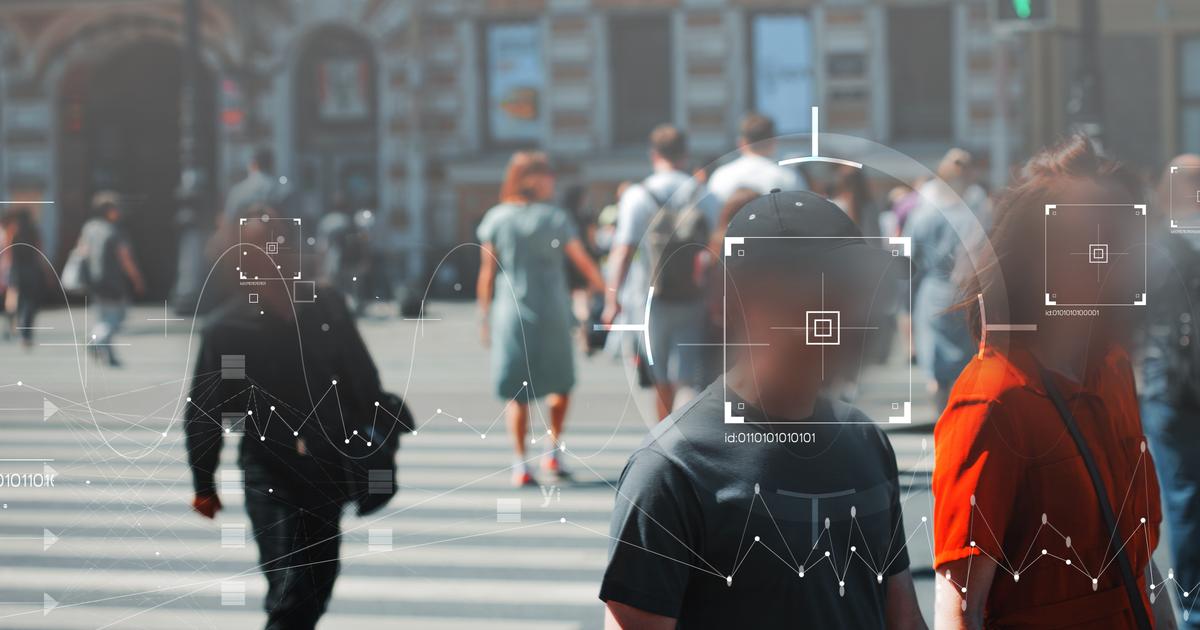Vincent Berthet is a lecturer at the University of Lorraine and associate researcher at the Sorbonne Center for Economics. He is the author of
The error is human, At the borders of rationality
(CNRS Éditions, 2018; Biblis, 2021).
Léo Amsellem is a political scientist, a graduate of Sciences Po Paris, the Sorbonne and the London School of Economics.
Together they publish
The New Oracles.
How algorithms predict crime
(CNRS Éditions, 2021).
The recent incidents at the Stade de France during the Champions League final have called into question France's ability to ensure the security of the 2024 Olympics. For those of Tokyo 2020, the Japanese authorities had deployed the security device the most expensive in the history of the Games, which included technological solutions such as facial recognition, virtual law enforcement and early crime detection programs.
It is France's turn to deal with the issue of AI technologies in terms of security.
This reflection imposed by the prospect of Paris 2024 is a deadline that should not be missed, otherwise France and Europe will be left behind in the development of these technologies, vassalized by the world leaders in AI,
The deployment of these technologies on a large scale has always been the subject of serious reservations and criticism in France particularly but also on a European scale, as shown by the vote on a resolution in the European Parliament in October 2021 aimed at establishing a moratorium on facial recognition technologies on the grounds that they are imperfect and pose an excessive risk to freedoms.
Does this principled position stand up to the test of reality, when it comes to ensuring the safety of athletes, delegations and millions of spectators?
The challenge is to bring out French and European solutions that are soluble in our rule of law, and the only way to do this is through experimentation.
Vincent Berthet and Leo Amsellem
Last November, we published a column emphasizing the dangers of such a position: blocked on the strict respect of civil liberties, it closes the door to a risk-benefit analysis
that is more capable of founding a reasoned and pragmatic choice.
Faced with the — real — risks carried by these technologies, the challenge is to bring out French and European solutions that are soluble in our rule of law, and the only way to do this is through experimentation.
Last May, the Senate revealed the report of an information mission on biometric recognition in public space.
In line with the proposal for regulation on AI of April 21,
2021 by the European Commission, the authors of the report outline the path of a pragmatic compromise and rid of an ideology that would obscure the difficult equation between security
and freedom;
between innovation and regulation.
On these arduous but consubstantial subjects of the social contract 2.0, we must be delighted that the Parliament expresses a clear position and manages to dispassion without depoliticizing a highly divisive subject, without compromising on the requirements in terms of public freedoms.
This law would make it possible to authorize, on an experimental basis, certain real-time facial identification practices, such as the securing of particularly sensitive sites during major events in the face of a terrorist threat.
Vincent Berthet and Leo Amsellem
The senators rightly point out that the legal vacuum that currently prevails around these technologies does not in fact protect anyone and that a three-year experimentation law, accompanied by a public and independent evaluation procedure, would be likely to create the fruitful framework in which a French position could take shape.
This law would allow
to authorize on an experimental basis certain real-time facial identification practices, such as the securing of particularly sensitive sites during major events in the face of a terrorist threat, or even the monitoring of a person who has just committed a serious offence.
It would still be a question, a posteriori, of allowing the intelligence services to deploy facial recognition systems in order to identify a wanted person or to reconstruct their journey.
It should be remembered in this respect that a study by researchers from the University of Michigan in 2013 showed that a facial recognition algorithm could quickly identify the perpetrators of the
Boston Marathon attack, when it took the services of police several days to do this.
In 2005, following the attacks in London, the British police had to watch 6,000 hours of recordings from surveillance cameras.
A process that would benefit from being automated, after experimentation and evaluation.
The experiments, encouraged by the Senate report, are a first step towards a capacity to develop our own AI solutions.
Vincent Berthet and Leo Amsellem
If it is urgent to anchor a French and European position, it is also to take a founding act of our digital sovereignty.
In the absence of sovereign AI solutions, we have
pure hands but we have no hands, and are forced, when an emergency ends our reluctance, to rely on foreign solutions less adapted to our
democratic choices.
.
The experiments, encouraged by the Senate report, are a first step towards a capacity to develop our own AI solutions.
Faced with new security challenges, we can now prefer anticipation to procrastination, which can lead us to haste or even to a form of submission.
As public action calls for control, any reinforcement of the State surveillance arsenal must be accompanied by an equal reinforcement of the guarantees aimed at avoiding any excessive or disproportionate use.
With the CNIL, France already has an expert and demanding institution which would benefit from being strengthened by legislation to make it a veritable policeman for biometric recognition.
Only with this method of blending experimentation, innovation and democratic control will we be able to unlock the full extent of opportunities
offered by new technologies while anticipating their possible adverse effects.

